Lung cancer cases linked to air quality
Updated: 2014-02-27 03:15
By WANG QINGYUN and SHAN JUAN (China Daily)
|
||||||||
Potential health impact of smog could be much greater than SARS, expert says
A type of lung cancer reported to be increasing in Beijing has been linked to worsening air quality, with an expert warning that the potential health impact could be much greater than the SARS epidemic in 2003.
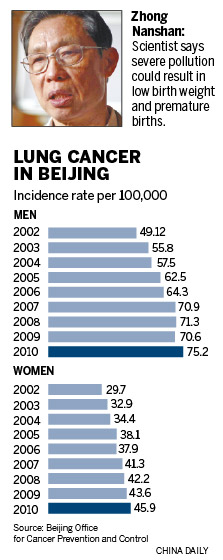
"The proportion of lung adenocarcinoma cases is increasing," said Wang Ning, deputy director of the Beijing Office for Cancer Prevention and Control, adding that there has been a drop in the proportion of squamous cell lung cancer cases in the capital.
Adenocarcinoma of the lung is a common histological form of lung cancer that contains certain distinct malignant tissue, while the other type is a form of non-small-cell lung cancer.
Medical experts believe that smoking is more likely to cause squamous cell lung cancer, while exposure to air pollution, such as exhaust gases and secondhand smoking, is more likely to cause adenocarcinoma of the lung, Wang said.
Zhong Nanshan, an academic at the Chinese Academy of Engineering and director of the Guangzhou Institute of Respiratory Diseases, said that without timely intervention, pollution could have a potential health impact much greater than that of the SARS epidemic.
Zhong also said that severe pollution could result in low birth weight and premature births.
He said there has been an increasing number of studies on the relationship between air quality and health, and he referred to one linking exposure to air pollution and traffic fumes to low birth weight.
This study found that for every 10-microgram increase in PM2.5 per cubic meter, the incidences of premature birth increased by 3 to 5 percent, while average birth weights were lowered by 8.9 grams.
PM2.5 particles are air pollutants with a diameter of 2.5 micrometers or less, small enough to invade the smallest airways.
Some public health experts have forecast that in five to seven years, China will see a substantial increase in diseases including lung cancer and cardiovascular conditions, Zhong said.
Wang’s findings on cancer resulted from a study she led that was published in the Chinese Journal of Preventive Medicine in March 2011. Wang and her co-workers examined cases of lung cancer diagnosed at Beijing hospitals from 1998 to 2007.
"Of the city’s lung cancer cases that were histologically diagnosed, the proportion of squamous cell lung cancer decreased yearly from 30.41 percent in 1998 to 24.16 percent. Meanwhile, the proportion of lung adenocarcinoma increased from 42.83 percent to 46.80 percent," the study found.
The International Agency for Research on Cancer, under the World Health Organization, has also linked lung cancer to air pollution.
In October 2013, the IARC said that outdoor air pollution was a leading environmental cause of cancer.
"After thoroughly reviewing the latest available scientific literature, the world’s leading experts, convened by the IARC, said there is sufficient evidence that exposure to outdoor air pollution causes lung cancer," the agency said.
Beijing hospitals have reported a rise in patients seeking treatment for respiratory problems since smog descended on the capital seven days ago.
Zhao Hongmei, a respiratory medicine doctor at Beijing Bo’ai Hospital, said her department has been overwhelmed by patients.
"Usually, a doctor in my department sees 40 to 50 patients every morning. Now, the number has risen to 70," she said. "We have been working at full capacity since Spring Festival."
She said the number of patients in their 30s and 40s has increased markedly since the smog arrived.
"Most showed symptoms such as coughing and discomfort in the throat, but X-rays showed their lungs were not infected.’’
Zhou Jipu, a doctor in the respiratory department at Beijing Hospital of Traditional Chinese Medicine, said he has seen an increase in elderly patients with underlying diseases in his department since Spring Festival, and smog has worsened their conditions.
Contact the writers at wangqingyun@chinadaily.com.cn and shanjuan@chinadaily.com.cn.
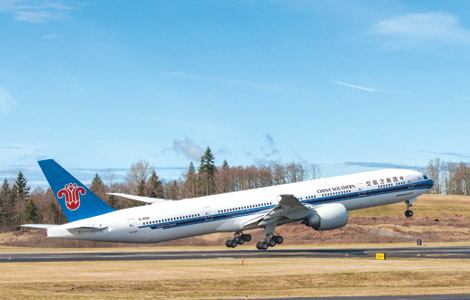
 Airline receives its first Boeing 777-300
Airline receives its first Boeing 777-300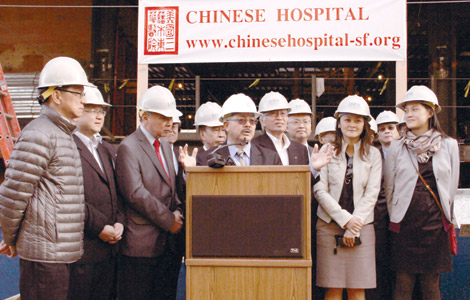
 Beaming with pride
Beaming with pride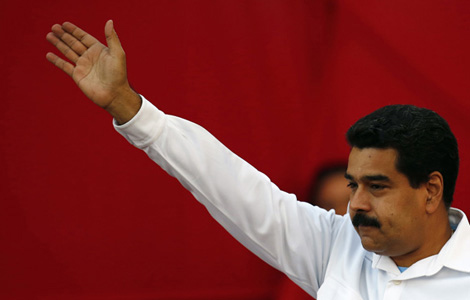
 US expels Venezuelan diplomats
US expels Venezuelan diplomats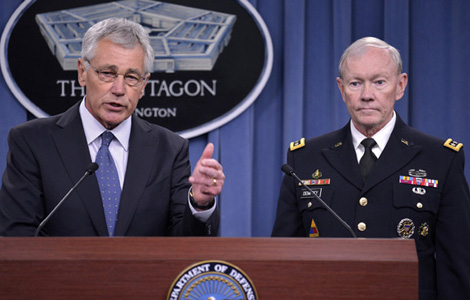
 Pentagon chief plans to reduce US army size
Pentagon chief plans to reduce US army size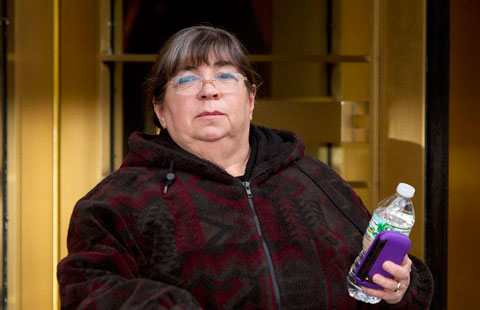
 2nd Madoff aide testifies, denies knowledge of fraud
2nd Madoff aide testifies, denies knowledge of fraud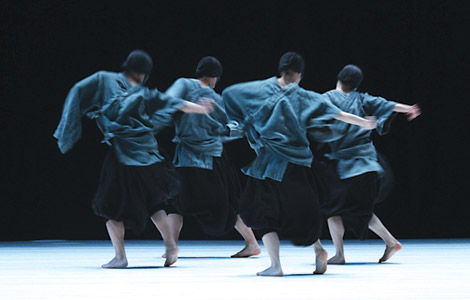
 TAO Dance troupe premieres '5' at NYU
TAO Dance troupe premieres '5' at NYU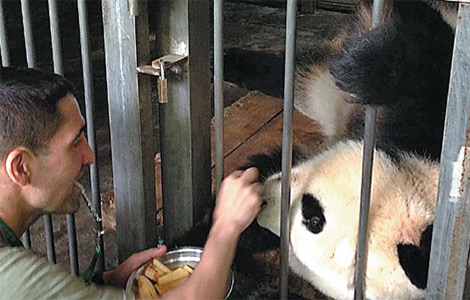
 Playing with pandas
Playing with pandas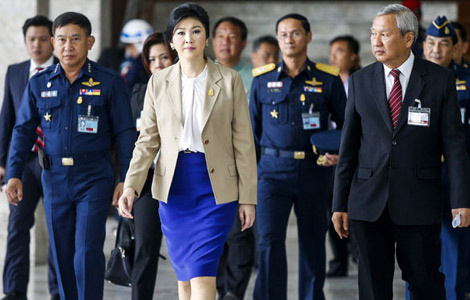
 Explosion, gunfire ring out near Bangkok protest site
Explosion, gunfire ring out near Bangkok protest site
Most Viewed
Editor's Picks

|

|

|

|

|

|
Today's Top News
Asiana Airlines fined $500K over SF crash
TPP talks in final stretch
Book fair spotlights Chinese publishing
Weibo faces modest growth in '14
Services top US firms' revenue
Health market a big opportunity: report
Memorial days plan drawn up
'Comfort station' to be preserved
US Weekly

|

|





